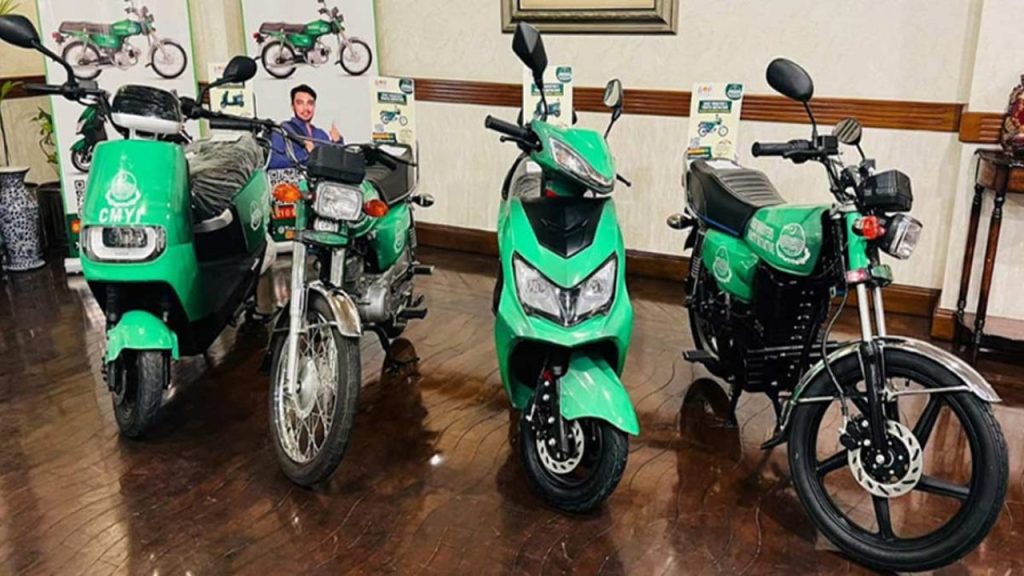The Government of Pakistan has unveiled an ambitious initiative to distribute 116,000 electric bikes over two years, aligned with the National Electric Vehicle (NEV) Policy 2025–2030. This move is designed to shift daily transportation toward greener, cost-efficient alternatives.
The official launch is expected to coincide with Independence Day, when Prime Minister Shehbaz Sharif will officially unveil the new EV policy. The scheme has been collaboratively developed with key institutions including the State Bank of Pakistan and the Banking Association to ensure smooth financing and affordability.
How the Scheme Works
- Subsidy per E‑Bike: Each eligible e‑bike or electric rickshaw will receive a direct subsidy of Rs 50,000.
- Estimated Price: The retail price is projected at approximately Rs 250,000, with buyers responsible for the remainder in monthly installments.
- Target Age Group: Individuals aged 18–65 can apply for the scheme.
- Participating Manufacturers: Currently, 17 local companies hold licenses to produce e‑bikes under the scheme’s parameters.
Strategic Goals and Financial Planning
- The program aims to contribute to achieving 30% electric vehicle share by 2030.
- A total subsidy budget of Rs 100 billion has been allocated for the next five years, with a phased distribution:
- Rs 9 billion in the current fiscal year
- Rs 19 billion planned for 2027
- Rs 24 billion for 2028
- Rs 26 billion in 2029
- Rs 23 billion projected for 2030
Why This Is a Game-Changer
Economic and Environmental Benefits
- Embracing electric transport helps reduce Pakistan’s reliance on imported fuel and eases urban air pollution.
- Lower operational costs for users make e‑bikes particularly attractive to low- and middle-income groups.
Financial Accessibility
- The installment plan, aided by collaboration with SBP and the banking sector, ensures affordability and widespread access, especially for youth, daily commuters, and women.
Strengthening EV Ecosystem
- This initiative is timely and builds upon the country’s Electric Vehicle Policy framework initiated in 2019.
- The scheme dovetails with broader targets, such as raising total EV production to 2.213 million vehicles by 2030, and targeting a 90% EV share by 2040, with full zero-emission fleet transition by 2060.
Next Steps on the Road
- Policy Launch on August 14: Prime Minister announces rollout as a national sustainability milestone.
- Eligibility and Enrollment: Citizens aged 18–65 can apply via designated banks or affiliated institutions awareness campaigns to precede distribution.
- Implementation Timeline: E‑bike distribution begins immediately afterward, spanning a two-year window.
- Further Expansion: The policy aims to extend across rickshaws, motorcycles, and eventually four-wheeler EV adoption.
Final Thought
This initiative represents a transformative moment for Pakistan’s mobility landscape. By making e‑bikes affordable, accessible, and widely available, the government is taking concrete steps toward climate action, transport equity, and local green growth. As the NEV Policy takes effect, this program sets a strong precedent for a cleaner, more sustainable transport future in the country.



Comments (0)
No comments yet. Be the first to comment!
Leave a Comment